
-
 Rahm out to break 2025 win drought ahead of US PGA Championship
Rahm out to break 2025 win drought ahead of US PGA Championship
-
Japan tariff envoy departs for round two of US talks
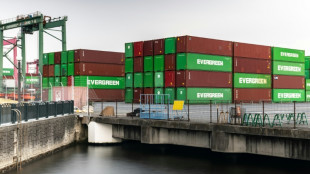
-
 Djurgarden eyeing Chelsea upset in historic Conference League semi-final
Djurgarden eyeing Chelsea upset in historic Conference League semi-final
-
Haliburton leads comeback as Pacers advance, Pistons stay alive
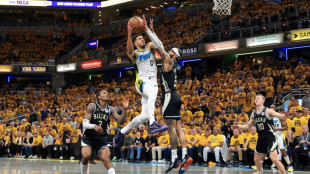
-
 Bunker-cafe on Korean border paints image of peace
Bunker-cafe on Korean border paints image of peace
-
Tunics & turbans: Afghan students don Taliban-imposed uniforms
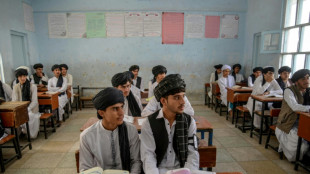
-
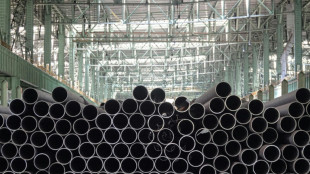 Asian markets struggle as trade war hits China factory activity
Asian markets struggle as trade war hits China factory activity
-
Norwegian success story: Bodo/Glimt's historic run to a European semi-final

-
 Spurs attempt to grasp Europa League lifeline to save dismal season
Spurs attempt to grasp Europa League lifeline to save dismal season
-
Thawing permafrost dots Siberia with rash of mounds
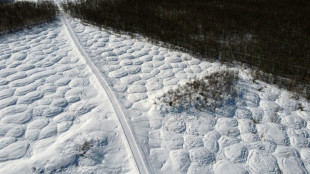
-
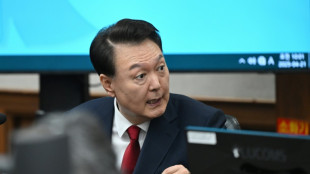 S. Korea prosecutors raid ex-president's house over shaman probe: Yonhap
S. Korea prosecutors raid ex-president's house over shaman probe: Yonhap
-
Filipino cardinal, the 'Asian Francis', is papal contender
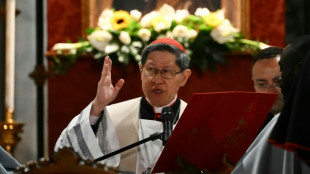
-
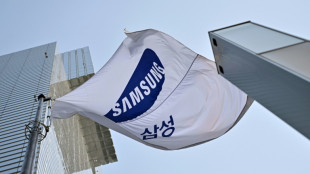 Samsung Electronics posts 22% jump in Q1 net profit
Samsung Electronics posts 22% jump in Q1 net profit
-
Pietro Parolin, career diplomat leading race to be pope
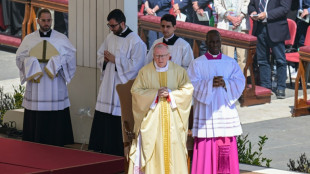
-
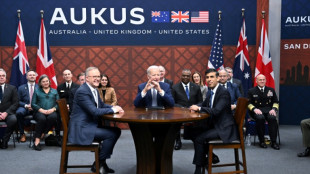 Nuclear submarine deal lurks below surface of Australian election
Nuclear submarine deal lurks below surface of Australian election
-
China's manufacturing shrinks in April as trade war bites
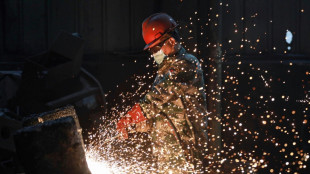
-
 Financial markets may be the last guardrail on Trump
Financial markets may be the last guardrail on Trump
-
Swedish journalist's trial opens in Turkey
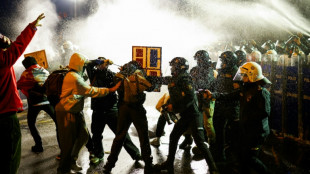
-
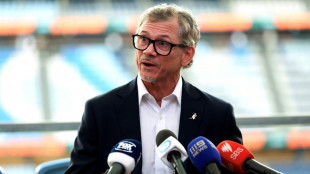 Kiss says 'honour of a lifetime' to coach Wallabies at home World Cup
Kiss says 'honour of a lifetime' to coach Wallabies at home World Cup
-
US growth figure expected to make for tough reading for Trump
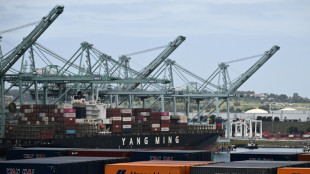
-
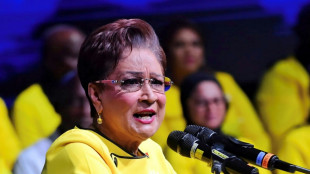 Opposition leader confirmed winner of Trinidad elections
Opposition leader confirmed winner of Trinidad elections
-
Snedeker, Ogilvy to skipper Presidents Cup teams: PGA Tour
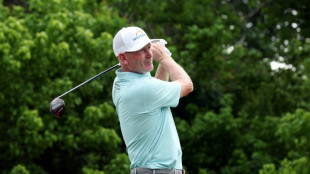
-
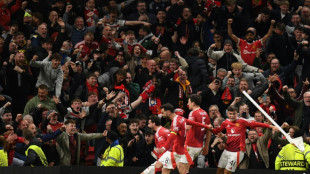 Win or bust in Europa League for Amorim's Man Utd
Win or bust in Europa League for Amorim's Man Utd
-
Trump celebrates 100 days in office with campaign-style rally

-
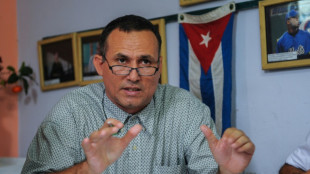 Top Cuban dissidents detained after court revokes parole
Top Cuban dissidents detained after court revokes parole
-
Arteta urges Arsenal to deliver 'special' fightback against PSG

-
 Trump fires Kamala Harris's husband from Holocaust board
Trump fires Kamala Harris's husband from Holocaust board
-
Pakistan says India planning strike as tensions soar over Kashmir attack
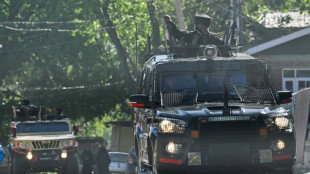
-
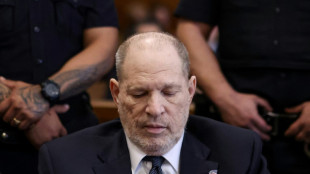 Weinstein sex attack accuser tells court he 'humiliated' her
Weinstein sex attack accuser tells court he 'humiliated' her
-
France accuses Russian military intelligence over cyberattacks
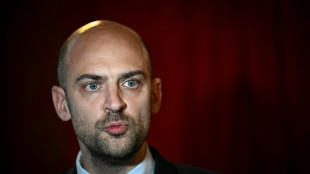
-
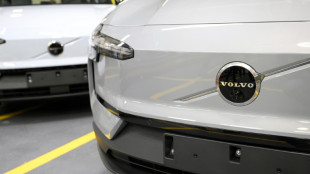 Global stocks mostly rise as Trump grants auto tariff relief
Global stocks mostly rise as Trump grants auto tariff relief
-
Grand Vietnam parade 50 years after the fall of Saigon
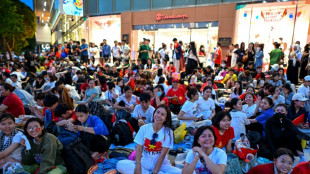
-
 Trump fires ex first gentleman Emhoff from Holocaust board
Trump fires ex first gentleman Emhoff from Holocaust board
-
PSG 'not getting carried away' despite holding edge against Arsenal
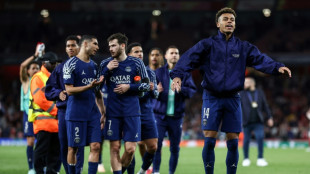
-
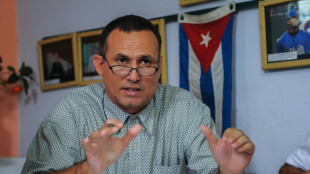 Cuban dissidents detained after court revokes parole
Cuban dissidents detained after court revokes parole
-
Sweden stunned by new deadly gun attack
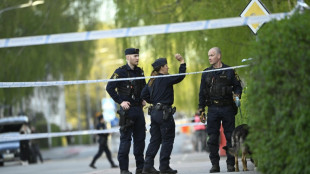
-
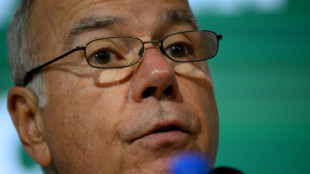 BRICS blast 'resurgence of protectionism' in Trump era
BRICS blast 'resurgence of protectionism' in Trump era
-
Trump tempers auto tariffs, winning cautious praise from industry
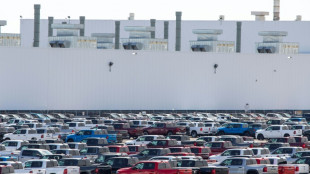
-
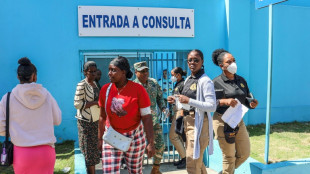 'Cruel measure': Dominican crackdown on Haitian hospitals
'Cruel measure': Dominican crackdown on Haitian hospitals
-
'It's only half-time': Defiant Raya says Arsenal can overturn PSG deficit
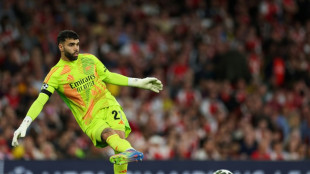
-
 Dembele sinks Arsenal as PSG seize edge in Champions League semi-final
Dembele sinks Arsenal as PSG seize edge in Champions League semi-final
-
Les Kiss to take over Wallabies coach role from mid-2026

-
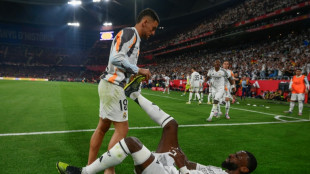 Real Madrid's Rudiger, Mendy and Alaba out injured until end of season
Real Madrid's Rudiger, Mendy and Alaba out injured until end of season
-
US threatens to quit Russia-Ukraine effort unless 'concrete proposals'
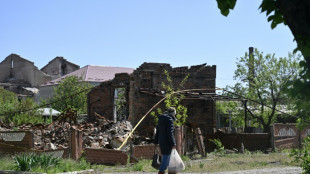
-
 Meta releases standalone AI app, competing with ChatGPT
Meta releases standalone AI app, competing with ChatGPT
-
Zverev crashes as Swiatek scrapes into Madrid Open quarter-finals
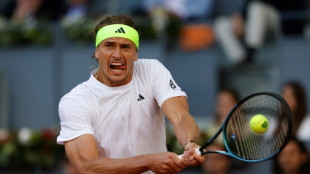
-
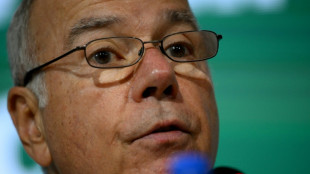 BRICS members blast rise of 'trade protectionism'
BRICS members blast rise of 'trade protectionism'
-
Trump praises Bezos as Amazon denies plan to display tariff cost

-
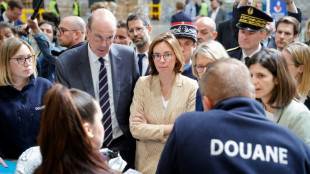 France to tax small parcels from China amid tariff fallout fears
France to tax small parcels from China amid tariff fallout fears
-
Hong Kong releases former opposition lawmakers jailed for subversion
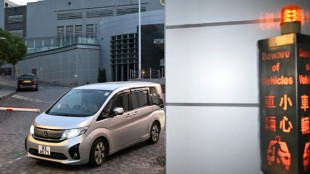

At night, crime and fear stalk DR Congo's M23-run areas
Every morning the Congolese city of Bukavu, now under the control of the Rwanda-backed M23 movement, counts its dead.
Corpses are discovered at dawn, lying in the steep streets of the capital of South Kivu province, which has been in the hands of the anti-government group since mid-February after it launched a lightning offensive.
The Congolese administration deserted the area after the M23 fighters and their Rwandan allies seized the city in the volatile eastern Democratic Republic of Congo, meeting virtually no resistance.
The M23 had already taken control of another major city in eastern DRC, Goma, at the end of January.
But the armed group has struggled to keep a grip on the vast area it has captured.
There, no one really knows the circumstances surrounding nightly killings, or can identify their perpetrators with certainty.
Territories under M23 control no longer have courts or prisons and hardly any police at all.
Bukavu's two million or so inhabitants can enjoy some level of normalcy during the day -- but when it gets dark, the streets empty out.
"We stay up all night. Bandits can break into our homes at any moment," said Jean Bosco, a Bukavu resident, who said he hurries home before nightfall.
Congolese troops who fled the city left their weapons behind, which were then picked up by criminals.
Thousands of pro-Kinshasa "wazalendo" ("patriots" in Swahili) militia members, known for their exactions and lack of military discipline, have hidden in neighbourhoods surrounding the city.
They have been joined by hundreds of criminals released from prison.
In small groups, they rob and break into homes.
A lack of cash in M23-governed areas, where banks shut down months ago and are no longer supplied by authorities in the capital Kinshasa, also feeds criminality.
- 'Widespread fear' -
"Last week, they broke into my sister's place, they hit her in the head to make her hand over her belongings," Bosco said.
"Not a night goes by without talk of households being attacked," said Amos Bisimwa, who represents civil society groups in Bukavu, speaking of "widespread fear".
Residents try to organise themselves as best they can, buying whistles to alert neighbours in the event of an attack and lamps to light up the streets.
Lynchings of suspected criminals, sometimes cover-ups for revenge killings, have been widely documented by humanitarian and civil society groups.
The United Nations has also accused the M23 movement of extrajudicial killings of alleged criminals, who sometimes are aged under 18.
According to security sources, the M23 has between 6,000 and 10,000 fighters deployed on the ground and currently relies on the millions of people living in areas it controls to report criminals.
But it faces a certain level of reluctance, with some fearing reprisals and others putting up a form of passive resistance.
This is especially the case in cities, which are "more politicised than the countryside", said Onesphore Sematumba, a researcher with the International Crisis Group.
After taking Goma, "the M23 faced a dilemma: stay in Goma to consolidate its positions and demonstrate its ability to run (these areas), or take advantage of the lack of resistance to chase the Congolese army as far as possible and force Kinshasa to negotiate," Sematumba said.
By taking Bukavu and considerably expanding its territory, he added, "the M23 finds itself everywhere and nowhere".
- 'Tired of constant wars' -
The hills surrounding Bukavu and Goma have turned into a refuge for thousands of "wazalendo" militia members, who descend into the cities to carry out acts of guerrilla warfare and loot homes.
On April 11, militia members launched a nighttime attack on Goma but were swiftly pushed back by the M23, with intense fire resonating across several neighbourhoods.
Two days later, they launched an incursion into Bukavu's Kavumu district, where the airport is located.
M23 spokesman Lawrence Kanyuka later invited the media onto the airport's tarmac where he said the group was doing its "best to secure the population 24 hours a day", while acknowledging that the "wazalendo" were committing "crimes every day".
In downtown Kavumu, a young man speaking on condition of anonymity said he was "tired of the constant wars".
"If the wazalendo show up, we'll applaud them. If the M23 rebels show up, we'll do the same," he said.
The M23 group, which hopes to garner popular support through good governance, aims to also beef up its ranks.
Thousands of Congolese policemen and soldiers who have joined the M23 are receiving technical and ideological training.
Some were already deployed at the weekend, an M23 representative told AFP.
A.Ruegg--VB
